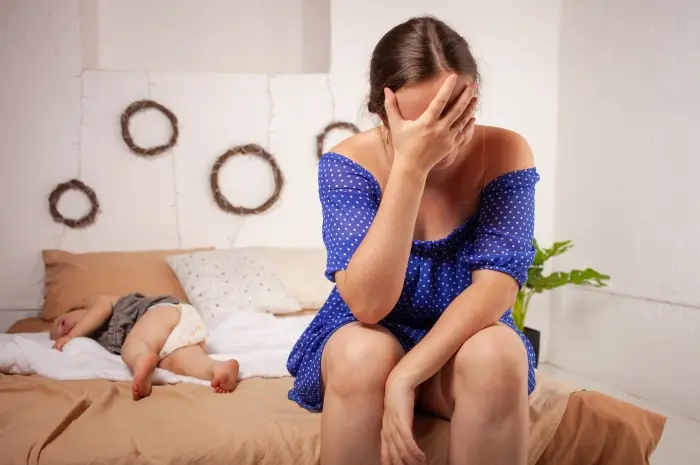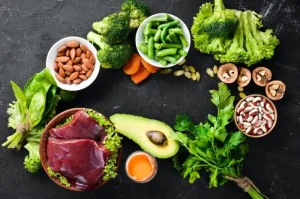Depression is a complex mental health condition that affects millions of people worldwide. It goes beyond temporary feelings of sadness or low mood, significantly impacting a person’s daily life, relationships, and overall well-being.
Understanding the different types of depression and their symptoms is crucial for recognizing the condition in oneself or others and seeking appropriate treatment.
With various forms of depression presenting unique challenges, gaining insight into each type can help in identifying the most effective coping strategies and interventions.
This article explores 10 common types of depression, highlighting their distinct characteristics and symptoms.
By familiarizing yourself with these types, you can better understand the nuances of depression, leading to improved mental health awareness and more informed conversations about this pervasive issue.
1. Major Depressive Disorder (MDD)
Major Depressive Disorder, also known as clinical depression, is characterized by a persistent feeling of sadness or a lack of interest in external stimuli.
It is one of the most common types of depression, affecting daily functioning.
Symptoms
- Persistent sadness or low mood
- Loss of interest or pleasure in activities once enjoyed
- Significant weight loss or gain
- Insomnia or excessive sleeping
- Fatigue or loss of energy
- Feelings of worthlessness or excessive guilt
- Difficulty concentrating
- Recurrent thoughts of death or suicide
2. Persistent Depressive Disorder (PDD)
Persistent Depressive Disorder, previously known as dysthymia, is a chronic form of depression.
It is less severe than MDD but lasts for a longer period, often for at least two years.
Symptoms
- Depressed mood for most of the day
- Poor appetite or overeating
- Insomnia or hypersomnia
- Low energy or fatigue
- Low self-esteem
- Poor concentration or difficulty making decisions
- Feelings of hopelessness
3. Bipolar Disorder
Bipolar Disorder is characterized by extreme mood swings that include emotional highs (mania or hypomania) and lows (depression). It differs from MDD due to the presence of manic episodes.
Symptoms
- Manic episodes: elevated mood, increased activity, reduced need for sleep, grandiosity, talkativeness, racing thoughts, risk-taking behaviors
- Depressive episodes: symptoms similar to MDD
4. Seasonal Affective Disorder (SAD)
Seasonal Affective Disorder is a type of depression that occurs at a specific time of year, usually during the winter months when daylight hours are shorter.
Symptoms
- Sadness or low mood
- Loss of interest in activities
- Changes in appetite (craving carbohydrates)
- Weight gain
- Fatigue or low energy
- Difficulty concentrating
- Irritability
- Feelings of hopelessness or worthlessness
5. Postpartum Depression (PPD)

Postpartum Depression affects women after childbirth. It involves severe emotional changes that go beyond the “baby blues,” impacting a mother’s ability to care for her newborn.
Symptoms
- Severe mood swings
- Intense irritability or anger
- Overwhelming fatigue
- Feelings of sadness, hopelessness, or inadequacy
- Difficulty bonding with the baby
- Withdrawal from family and friends
- Thoughts of harming oneself or the baby
6. Premenstrual Dysphoric Disorder (PMDD)
Premenstrual Dysphoric Disorder is a severe form of premenstrual syndrome (PMS) that causes significant emotional and physical symptoms before menstruation.
Symptoms
- Severe irritability, anger, or mood swings
- Depressed mood or feelings of hopelessness
- Tension or anxiety
- Decreased interest in usual activities
- Difficulty concentrating
- Fatigue or low energy
- Changes in appetite
- Sleep disturbances
- Physical symptoms such as bloating, breast tenderness, headaches, and joint or muscle pain
7. Atypical Depression
Atypical Depression is a subtype of Major Depressive Disorder. It is characterized by a temporary mood lift in response to positive events, along with other specific symptoms.
Symptoms
- Mood reactivity (mood improvement in response to positive events)
- Increased appetite or weight gain
- Excessive sleepiness or sleep duration
- Heavy feeling in arms or legs
- Sensitivity to rejection or criticism
8. Psychotic Depression
Psychotic Depression is a severe form of depression that includes symptoms of psychosis, such as hallucinations or delusions.
Symptoms
- Depressive symptoms similar to MDD
- Hallucinations (seeing or hearing things that aren’t there)
- Delusions (false beliefs)
- Paranoia
- Severe feelings of worthlessness or guilt
9. Situational Depression
Situational Depression, also known as adjustment disorder with depressed mood, occurs in response to a specific stressful event or situation.
Symptoms
- Sadness or hopelessness
- Anxiety
- Difficulty concentrating
- Changes in sleep patterns
- Loss of interest in activities
- Social withdrawal
- Irritability
- Feelings of being overwhelmed
10. Disruptive Mood Dysregulation Disorder (DMDD)
Disruptive Mood Dysregulation Disorder is a childhood condition characterized by severe irritability, anger, and frequent, intense temper outbursts.
Symptoms
- Severe temper outbursts that are out of proportion to the situation
- Persistent irritability or anger
- Difficulty functioning in school, at home, or with peers
- Symptoms present for at least 12 months
Conclusion
Understanding the various types of depression and their symptoms is crucial for recognizing the condition and seeking appropriate treatment.
Each type presents unique challenges and requires tailored approaches to management and care.
By familiarizing yourself with these different forms of depression, you can better support yourself or loved ones in navigating the complexities of this mental health condition.
If you or someone you know is experiencing symptoms of depression, it is essential to seek professional help to receive the appropriate support and treatment.










